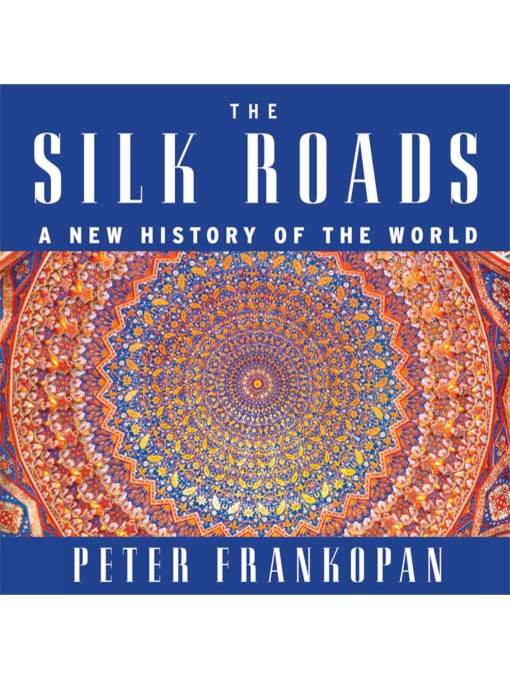
The Silk Roads
A New History of the World
کتاب های مرتبط
- اطلاعات
- نقد و بررسی
- دیدگاه کاربران
نقد و بررسی

Frankopan's sweeping and idiosyncratic history of "the heart of the world" expands the European view of history to show how that continent is connected culturally to the Middle East and to China. Laurence Kennedy is a solid narrator. His pacing is slow but always clear, and his voice is deep and pleasant to listen to. He works hard to master the names of the people and places of central Asia, although his Russian pronunciation is a little weak. His cultured British accent suits Frankopan's Oxford vocabulary and English outlook. The book is not a history from an East Asian or even Middle Eastern point of view. Instead, the author makes an effort to connect broader causes to traditional formulations of Eurocentric history over the last 2,000 years. F.C. © AudioFile 2016, Portland, Maine

Starred review from December 21, 2015
Upending the traditional narrative of Western enlightenment and world domination as the inevitable descendants of Greek and Roman intellectual ferment, Oxford historian Frankopan (The First Crusade) places the silk roads—the long, remote Central Asian trading routes linking Europe and China—at the center of human history. The silk roads served as conduits for goods and ideas as well as plagues and marauding armies, and their location at the nexus of Europe and Asia continues to drive world events today. Frankopan casts his net widely in this work of dizzying breadth and ambition. Casual readers may struggle to follow all the threads; those opening to any page will find fascinating insights that illuminate elusive connections across time and place. Frankopan’s thoughts on Islam, for instance, begin with newly discovered “wisps of text” that are reshaping understanding of Muhammad’s life and stretch across centuries to the modern luxuries of the “oil-soaked” Middle East. The Black Plague—carried west by the Mongols—devastated Europe and the Middle East, but “the plague turned out to be the catalyst for social and economic change that was so profound that far from marking the death of Europe, it served as its making.” Frankopan approaches his craft with an acerbic wit, and his epochal perspective throws the foibles of the modern age into sharp relief.

May 1, 2016
Frankopan (director, Centre for Byzantine Research, Oxford Univ.; The First Crusade) is one of the world's foremost experts on the silk roads, the crossroads of the world that brought together Eastern and Western civilizations. His lifetime of research on the rise and fall of multiple empires, the spread of and interaction among Buddhism, Christianity, and Islam, and his understanding of the markets, economies, landscapes, and politics around the world have much to teach the reader about the ways in which East and West have become globalized. He offers a true vision of the world as a melting pot. Laurence Kennedy's reading is vivid and engaging. VERDICT This audiobook is recommended for listeners who love history and are interested in economics and politics. ["Will engage and inform readers looking for historical underpinnings of long-festering conflicts among nations, cultures, and religions": LJ 1/16 review of the Knopf hc.]--Pam Kingsbury, Univ. of North Alabama, Florence
Copyright 2016 Library Journal, LLC Used with permission.

























دیدگاه کاربران